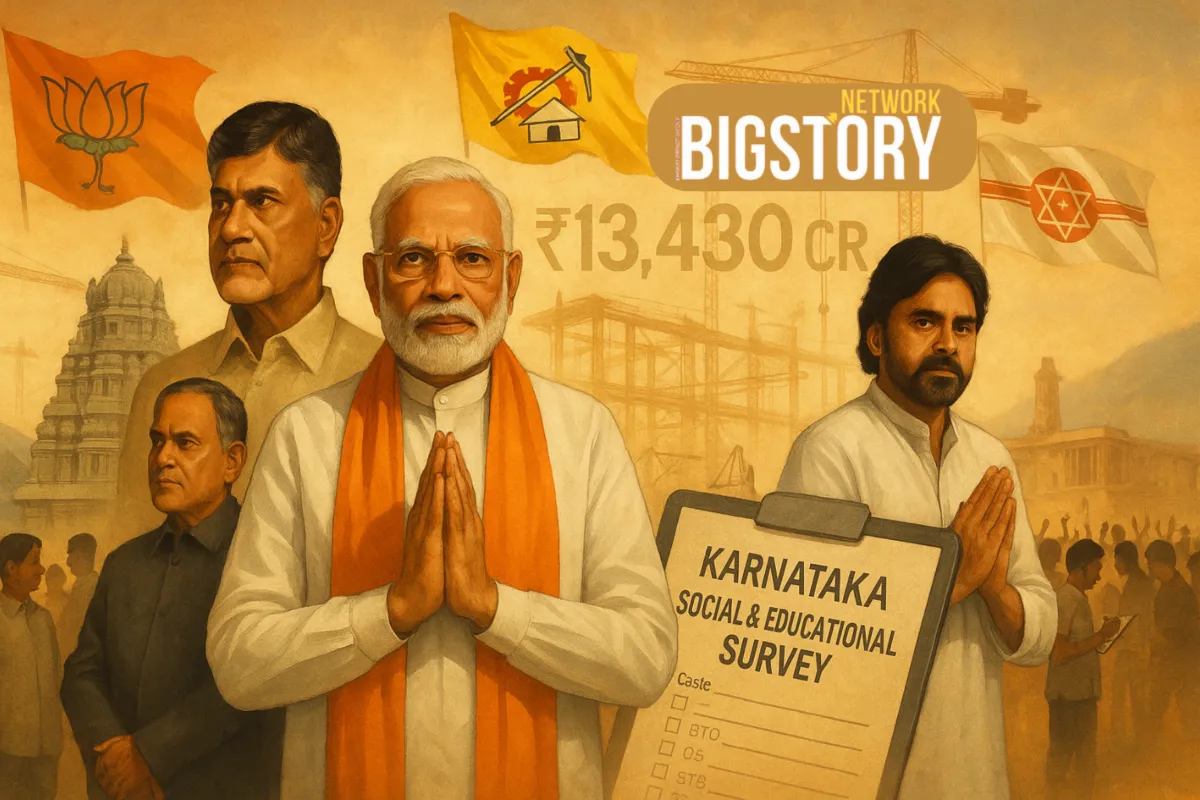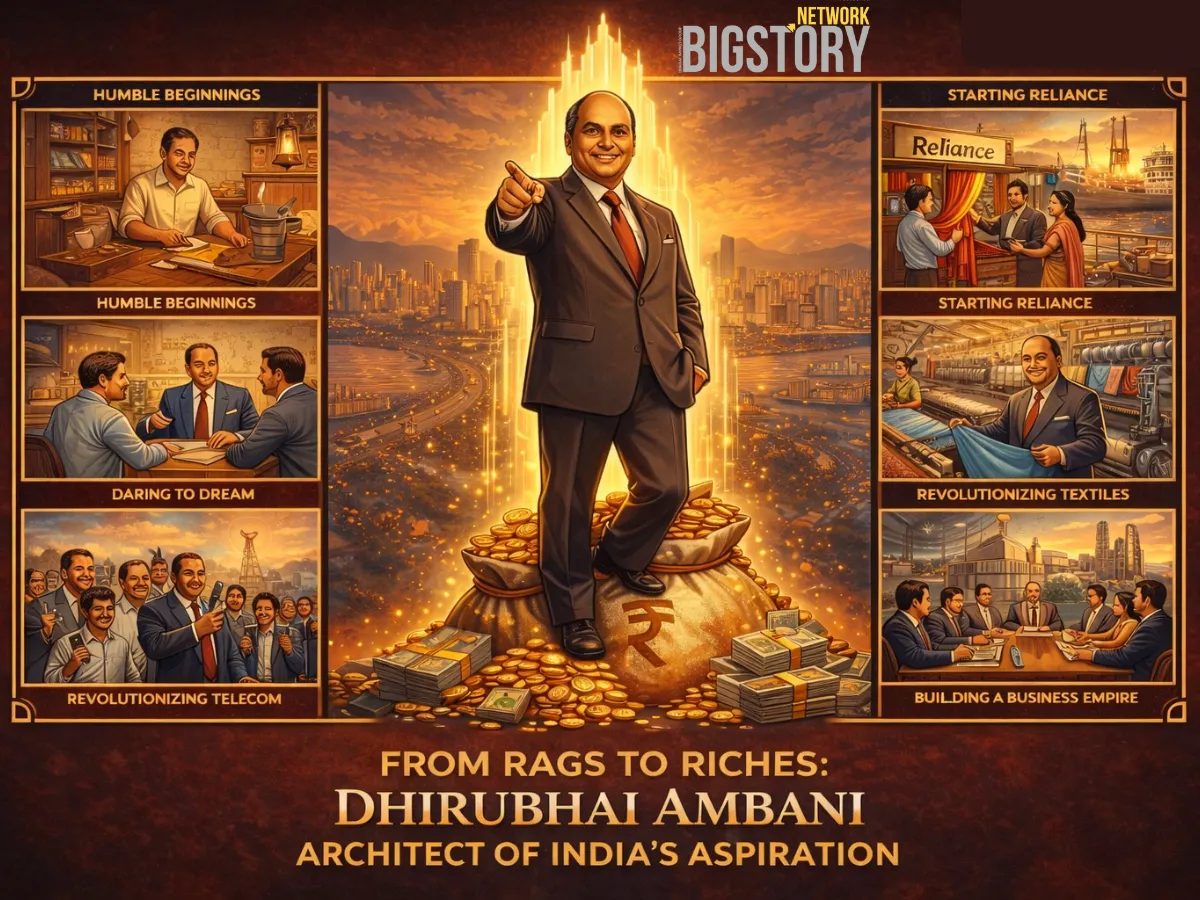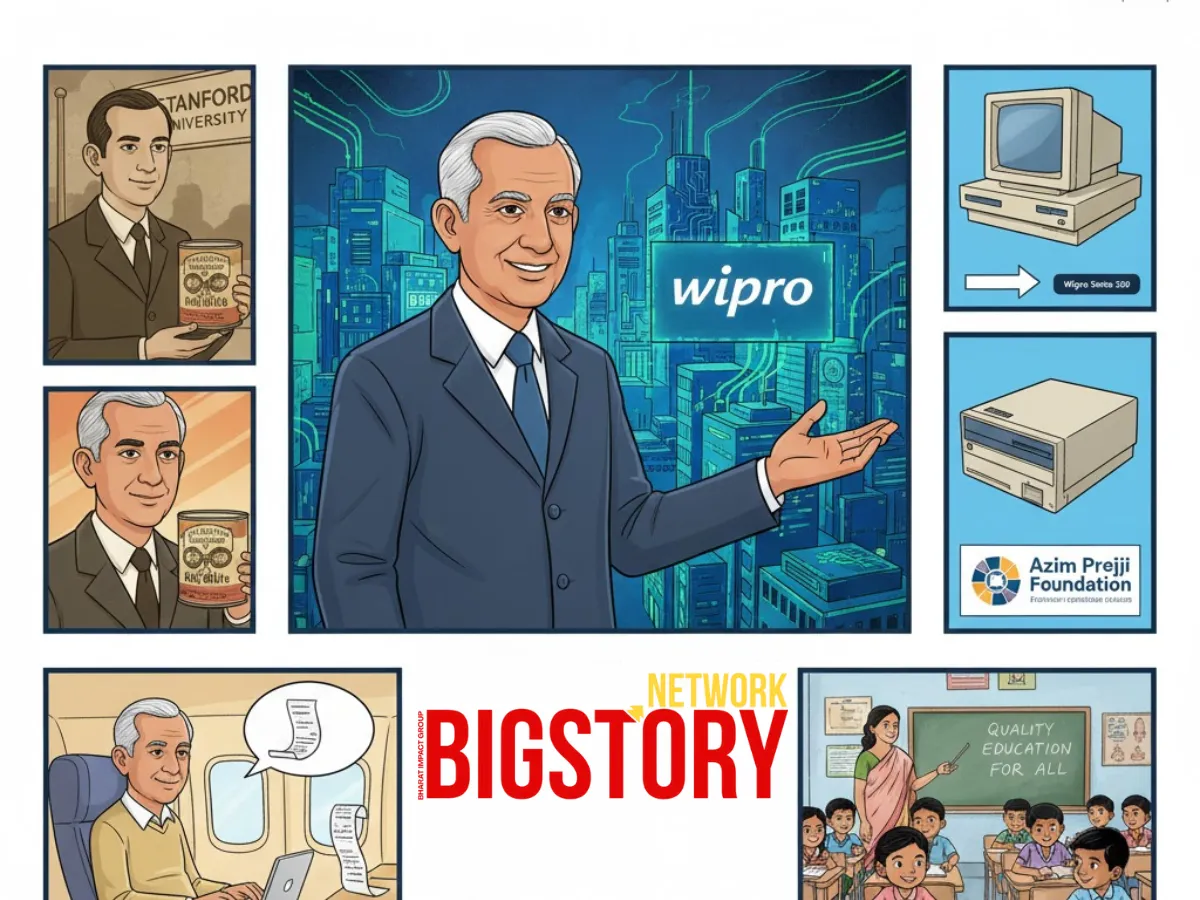PM Modi’s Kurnool visit mixed temple rituals with ₹13,430 crore development projects — and sealed a political alliance with Naidu and Pawan Kalyan.
 Brajesh Mishra
Brajesh Mishra

Prime Minister Narendra Modi landed in Kurnool on Thursday to a ceremonial welcome from Chief Minister N. Chandrababu Naidu, Governor S. Abdul Nazeer, and Deputy Chief Minister Pawan Kalyan. The visit combined religious symbolism, infrastructure announcements worth ₹13,430 crore, and the performance of a political alliance that has reshaped power equations in Andhra Pradesh.
This was Modi’s first major visit to the state since the NDA returned to power in 2024 with crucial support from Naidu’s TDP and Pawan Kalyan’s Jana Sena Party. It was also a reminder of how development announcements are being used as political currency in India’s federal landscape.
Modi began his day with a visit to Sri Bhramaramba Mallikarjuna Swamy Devasthanam in Srisailam, one of the country’s most sacred temples, home to both a Jyotirlinga and a Shakti Peeth. Temple officials confirmed that Modi performed rituals for about 45 minutes before visiting the nearby Sree Shivaji Spoorthi Kendra, a memorial commemorating Chhatrapati Shivaji Maharaj’s 1677 pilgrimage.
The religious stop was not incidental. The BJP has long used temple visits to frame developmental announcements in cultural language. Srisailam carries deep emotional resonance in Andhra Pradesh, and the optics were clear: Modi as both a devotee and a developer.
Modi’s main public address took place at Ragamayuri grounds, where an estimated three lakh people attended. On stage with him were Naidu and Pawan Kalyan — a visual representation of the tripartite alliance. The Prime Minister announced and inaugurated projects across multiple sectors:
The state government has called the package one of the largest single-day project portfolios in recent years.
Modi’s alliance with Chandrababu Naidu has undergone sharp turns. In 2018, Naidu left the NDA accusing the Centre of “betrayal” over the refusal to grant Special Category Status (SCS) to Andhra Pradesh — a promise made during the state’s bifurcation in 2014. But after five years in opposition and a landslide victory for Jagan Mohan Reddy’s YSRCP in 2019, Naidu recalibrated.
In early 2024, the TDP rejoined the NDA. The electoral results vindicated the decision: the TDP–BJP–Jana Sena alliance won overwhelmingly, delivering 16 Lok Sabha seats to the NDA — a critical number for Modi’s coalition. Naidu, now Chief Minister for the fourth time, has said, “Apart from the issue of special status, we do not have any differences [with BJP].”
Deputy Chief Minister Pawan Kalyan, whose Jana Sena Party won all 21 Assembly seats and 2 Lok Sabha seats it contested, was a prominent presence at the rally. Known for his public support of Modi, Pawan has previously described him as “a guiding force whose leadership inspires millions.”
Unlike Naidu’s strategic alliance, Pawan Kalyan’s alignment with the BJP has ideological undertones rooted in cultural nationalism. His 100% strike rate in the 2024 elections has made him an indispensable political actor in the coalition.
While the ₹13,430 crore announcements are significant, they do not address Andhra Pradesh’s longstanding demand for Special Category Status. The 2014 promise made in Parliament remains unfulfilled. CPI leader Lakshmi Narasimha Yadav criticized the Centre during the visit, saying, “The Centre betrayed Andhra Pradesh on bifurcation promises. Special status must be granted immediately.”
The special package offered as a replacement has not matched the fiscal advantage SCS would have provided — estimated at ₹50,000–₹70,000 crore over five years.
The Kurnool visit was more than an official ceremony. It was a political performance carefully staged:
For Modi, it strengthens the BJP’s presence in southern India. For Naidu and Kalyan, it reinforces their access to central projects and political leverage.
Andhra Pradesh remains strategically important to national politics. It’s one of the few southern states where BJP has a strong foothold through allies. The ₹13,430 crore package is not just investment — it’s a signal: alliances with the Centre bring funds, projects, and visibility.
But the absence of Special Category Status underscores the limits of that bargain. The central government has offered projects, not systemic fiscal change. Whether voters see this as progress or compromise will shape the state’s political future.
As Modi’s helicopter lifted off from Kurnool at sunset, the image was clear: temple bells, project boards, and three leaders waving together — each playing their part in a carefully balanced equation of faith, funds, and federal power.






Sign up for the Daily newsletter to get your biggest stories, handpicked for you each day.
 Trending Now! in last 24hrs
Trending Now! in last 24hrs